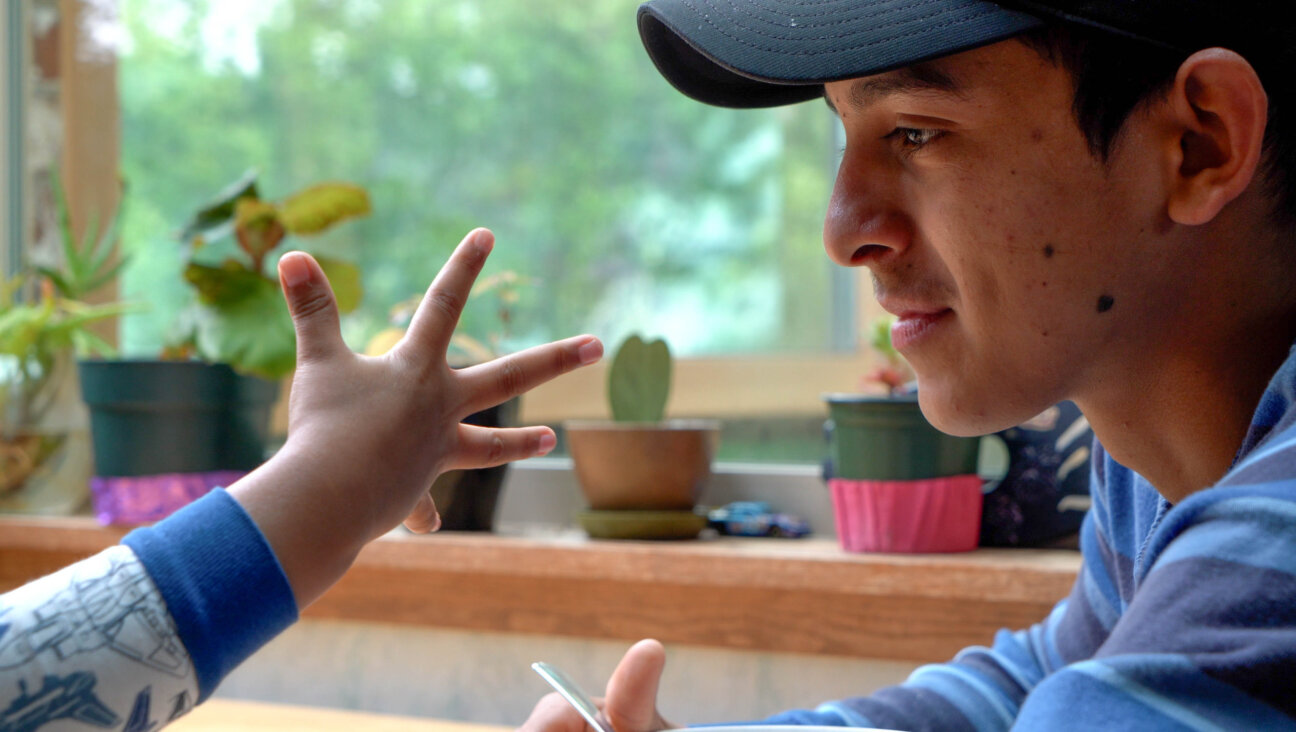An ‘Unmistaken Child’ Crosses the USA

Released in June from Oscilloscope Distribution, the documentary “Unmistaken Child” by Jerusalem-born Nati Baratz, a graduate of Tel-Aviv University’s Film School, continues its triumphal march across America, with scheduled screenings in Honolulu (Sept. 9); Cleveland (Sept. 11); Great Barrington, MA (Sept. 11); Key West (Sept. 11); and San Francisco (Sept. 13), and further showings into the winter.
Patiently filmed over five and a half years, “Unmistaken Child” tells the story of a search for the reincarnation of an eminent, recently dead Tibetan master by his disciple, who had been his companion since the age of seven. With a notably spare style and absence of narration, the film expresses the emotional clarity of the disciple, Tenzin Zopa, as he searches through tiny Tibetan villages. While there is plenty here to please JuBus, the film does not over-idealize its subject, and when the reincarnation is found in the form of a pudgy little boy, he howls with outrage when his head is ritually shaved, and shows less than reverent respect when presented to the Dalai Lama.
Baratz, who previously directed two documentary shorts, “Tel Aviv-Kyrgyzstan” (2001) and “Noches”(2004), first went to Nepal to research a film on a group of Orthodox Jews who are seeking a hidden Jewish tribe in Tibet. There he met Tenzin Zopa and, after asking permissions, was allowed to film a record of the quest for the reincarnation. Although not stated explicitly, the Tibetan approach of nonviolence (when possible) and loving their enemies powerfully captured the imagination of Baratz, himself born in a region where quite different approaches are more often the rule.

I hope you appreciated this article. Before you go, I’d like to ask you to please support the Forward’s award-winning journalism this Passover.
In this age of misinformation, our work is needed like never before. We report on the news that matters most to American Jews, driven by truth, not ideology.
At a time when newsrooms are closing or cutting back, the Forward has removed its paywall. That means for the first time in our 126-year history, Forward journalism is free to everyone, everywhere. With an ongoing war, rising antisemitism, and a flood of disinformation that may affect the upcoming election, we believe that free and open access to Jewish journalism is imperative.
Readers like you make it all possible. Right now, we’re in the middle of our Passover Pledge Drive and we need 500 people to step up and make a gift to sustain our trustworthy, independent journalism.
Make a gift of any size and become a Forward member today. You’ll support our mission to tell the American Jewish story fully and fairly.
— Rachel Fishman Feddersen, Publisher and CEO
Join our mission to tell the Jewish story fully and fairly.
Our Goal: 500 gifts during our Passover Pledge Drive!

























